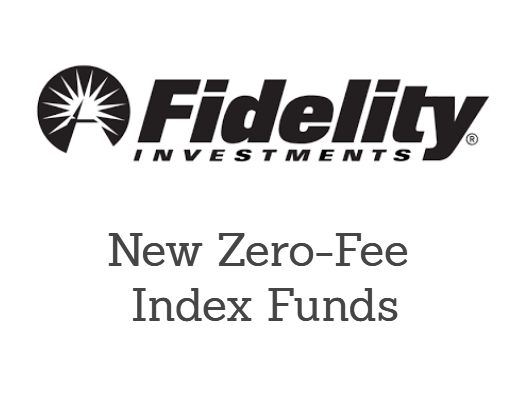If you’re planning for retirement, you have more options than ever. That’s good and bad, because some of these options are a perfect fit for your unique situation, while others can end up being extremely expensive.
- Betterment Promotional Offer Link?: Sign up here and Betterment will provide Non-pay 2 Months
(this is by far the best promotional link available as most affiliates only offer 1 month no pay)
The biggest problem people have is choosing a company to help them plan. There are so many options each promising to deliver something better than everyone else. But a fast-growing trend in financial management seems to be working out for a lot of people: Roboadvisors. This is an ultra low-cost way of using algorithms to optimize an investment strategy for you. Starting with a few questions, these services can get you set up with a detailed financial plan and tell you how to get there.
There are two big roboadvisors out there: Betterment and Wealthfront. At first glance, they are very similar, but there are key differences that make one option better than another.

But not everyone likes roboadvisors, and another investment firm has seen huge growth in the last decade as investors turn to them for help. That company is Vanguard, and their low-cost approach to investing makes them even less expensive than the roboadvisors, while offering some services that Betterment and Vanguard don’t (while lacking some important things those guys do have).
So what’s best for you? To get to the bottom of this, let’s take a look at each in some detail.
Betterment
One of the first roboadvisors on the market, Betterment combines asset allocation, retirement planning, and optimizing investing all in one service. They also offer this at a fraction of the fees that most financial advisors pay. For every $100,000 invested, Betterment charges $150 per year (a 0.15% fee), which is a fraction of the $83 that most human advisors charge (a 1% fee).
However, fees are higher for smaller accounts. With accounts under $10,000, investors pay a 0.35% annual fee. Accounts between $10,000 and $99,999 will pay an annual fee of 0.25%.
Also, Betterment has no minimum account balance, so you can start investing with just $1.
What do you get for your money? Betterment starts with an online questionnaire that asks about your age, your income, your savings, and your goals. Betterment focuses mostly on retirement, but they will also help you set up an emergency fund and get you on the investing ladder.
Betterment will also link up to external brokerage accounts and help you keep track of what is in them. This is all automated and easy to do—just log in with your username and password. The security here is top-notch, so no need to worry about being your data.
After you’ve done all that, Betterment will set you up with a plan and show you how much money you will have saved in the future. They will also tell you how much you need to reach your goals, and if you’re on track. They will also maximize your portfolio for tax purposes.
Speaking of taxes, Betterment can work with your IRA and help you roll over a 401k into a traditional IRA, a Roth IRA, or a SEP IRA. Again, this is all automated but they have people ready to help you—and you can call them or email them 7 days a week. Betterment even works with trusts.
Betterment knows different investors have different risk levels, so they can help you identify the ideal mix between stocks and bonds for your comfort level and recommend funds that are best for you. They will also recommend portfolios based on your age, future goals, and risk tolerance and tell you how many fees each fund will charge you, so you know how much you are paying for your investments.
Wealthfront
Wealthfront is a lot like Betterment, but is slightly more expensive, at $225 a year in fees for a $100,000 account. However, the first $10,000 are managed for free and Wealthfront only requires a $500 account minimum to set up.
Wealthfront is a bit more expensive than Betterment for larger accounts, but offers many of the same services, like an automated questionnaire-based portfolio setup and tax-optimizing portfolio management.
So why pay more for Wealthfront? While Betterment uses automation and focuses on funds, Wealthfront also offers a useful tool for people who own shares in a single company. This is particularly useful if you work at a public company and have been compensated in stocks.
It’s called the “single stock diversification service” and, in short, here’s how it works: if you have individual shares in a brokerage account, Wealthfront will help you build a plan to sell your stocks based on your risk profile, your financial goals, and how quickly you want to sell your stocks. They will also set aside money in an account for taxes, so you won’t be shocked by a high tax bill when April rolls around.
Vanguard
Thanks to its age, Vanguard is a more traditional brokerage: founded in 1975, the company has quietly grown to manage over $3 trillion in assets, versus the $3 billion or so that startups Wealthfront and Betterment manage.
The company was founded by John C. Bogle, who spearheaded the passive investing movement. Bogle rightly points out that most mutual fund managers cannot beat the market, and investors are better off just buying low-cost, low-fee index funds and holding for a long time. This philosophy drove him to start the first passive index mutual fund, the Vanguard 500 Index Fund, which has a fee of just 0.16%.
The fund has grown to manage nearly $430 billion in assets, and has become a popular choice with investors who want to save for the long-term without worrying about finding great stocks that will outperform duds.
Vanguard is also a brokerage, so you can open an account and start buying Vanguard mutual funds as well as ETFs, individual stocks, CDs, bonds, and options. Commissions are high—a trade costs $20 after the first 25 trades, which cost $7 (accounts with $50,000 or more have lower trading costs).
These added features make Vanguard a better option if you want to buy and sell individual stocks in addition to buying mutual funds and ETFs, but Vanguard’s services are very different. They don’t offer the roboadvisor services of Wealthfront and Betterment, so if you want to plan your retirement future and your asset allocation, you’ll need to speak to one of Vanguard’s advisors.
Finally, Vanguard offers many different types of accounts than Betterment or Wealthfront, so if you’re planning for a child’s college education, they have 529s. If you want an annuity, Vanguard can offer that too.
Also, Vanguard offers 401ks, which is a big plus over Betterment and Wealthfront. If you’re self-employed, Vanguard can help you set up your own 401k through your company (whether an LLC or a C-Corp) and link it to your main Vanguard brokerage account.
Betterment vs Wealthfront vs Vanguard Conclusion
For someone who is a little more confident and knowledgable about investing and who wants more flexibility in investing, Vanguard is probably the best option. But for someone just starting out who is trying to establish a plan for retirement, Wealthfront or Betterment are probably the better options.
Between those two, you should look at how much money you have, how much you plan to invest, and which fee structure makes more sense for you. Also, if you have a lot of shares in a company and want help selling them, Wealthfront’s unique single stock diversification service is a great feature.
Most importantly, you need to start with a solid financial plan and look at the option that is going to be best for you and your goals. Then you can get on the road to true financial independence.


